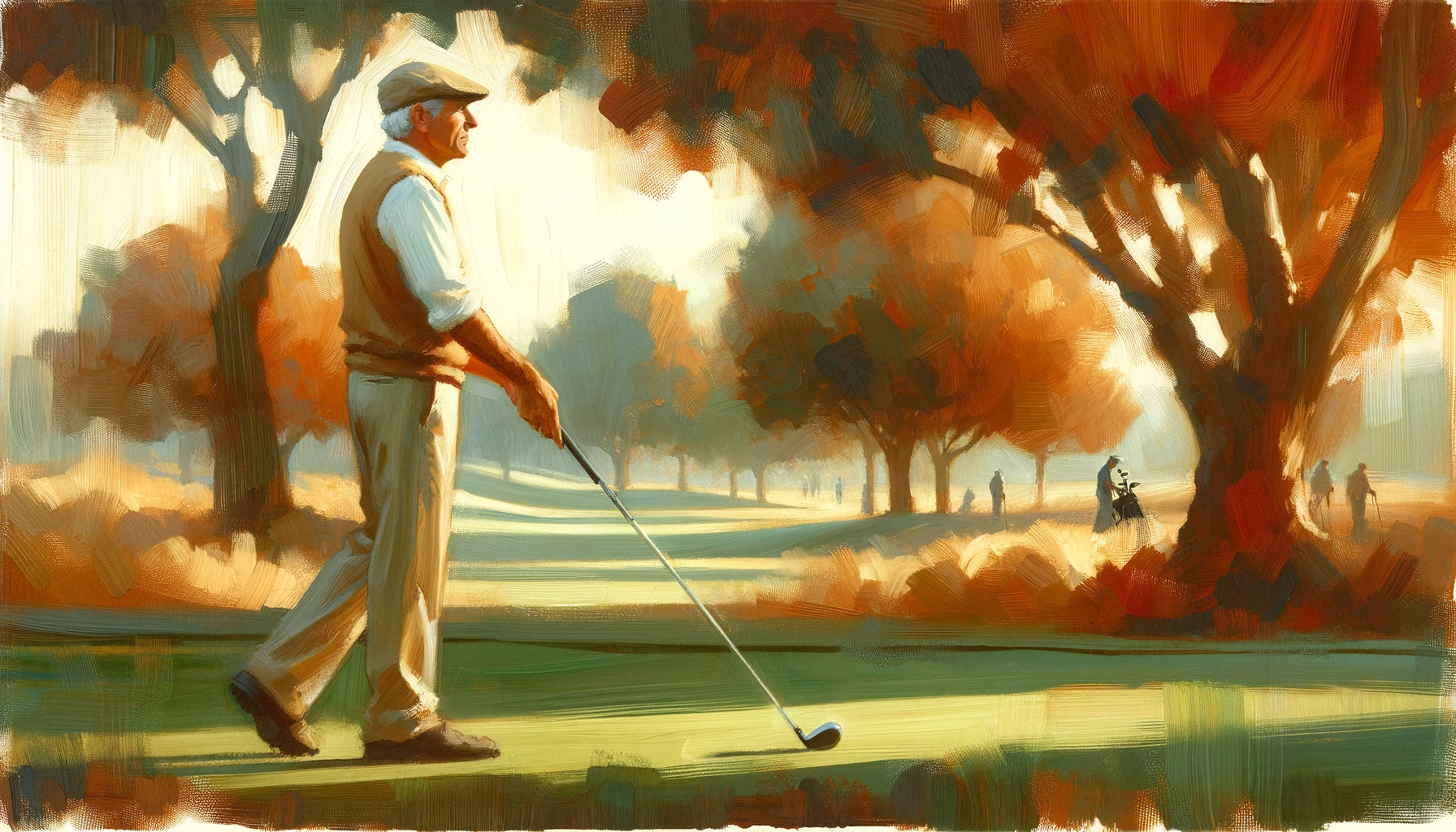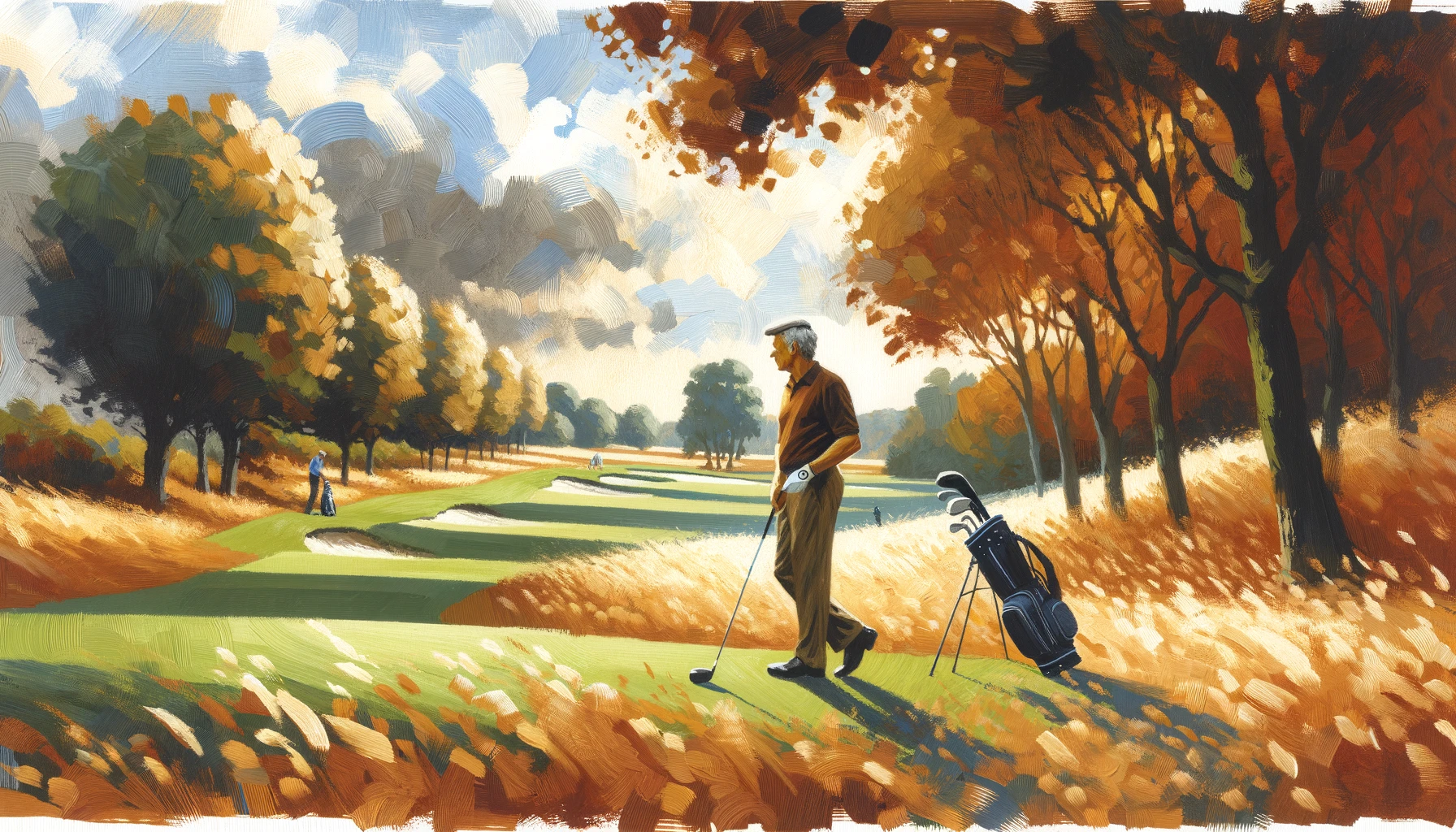- Home
- Golf Lessons
- Do Golf Lessons Help
Do Golf Lessons Help Improve Your Game Effectively?
Ever wondered if golf lessons are worth the investment? Whether you're struggling with consistency, technique, or just starting out, taking up golf lessons can be a game-changer. In just a few sessions, you could see significant improvements in your swing and overall strategy. This guide dives deep into how professional instruction can refine your game, boost your confidence on the course, and help you compete with seasoned golfers. Don't miss the key takeaways and FAQ section for quick insights!
Are you frustrated with your golf game, feeling like no matter how much you practice, your skills just aren't improving? You're not alone. Many golfers find themselves stuck in a rut, doubting their abilities and wondering if they'll ever play like the pros.
It's utterly disheartening, isn't it? You invest time and money, you hit the driving range regularly, but those stubborn mistakes just won't go away. Your drives still slice, your putts miss by miles, and the whole experience can leave you feeling deflated and embarrassed, especially if your golf buddies seem to be getting better.
Here's where golf lessons come in—a proven solution that has transformed the games of countless golfers from all skill levels. Professional guidance can address the exact issues that hold you back, providing you with personalized advice and practical strategies that are easy to implement. Imagine hitting those long, straight drives or mastering the art of putting. With the right coach, these dreams can become your reality, boosting your confidence and lowering your scores dramatically.
 A serene day on the golf course: perfecting the swing.
A serene day on the golf course: perfecting the swing.How Golf Lessons Can Transform Your Game Quickly
I've always enjoyed the calm and focus of golf but struggled with the inconsistency of my play. It was frustrating to see minimal improvement, despite my frequent rounds and practice sessions.
Determined to change my game, I spent countless hours on courses and driving ranges, but the breakthroughs were few and far between. I knew I needed something different to really make a change.
That's when I discovered the power of professional golf lessons. It was a game-changer. Having a seasoned coach who could provide tailored guidance and pinpoint my weaknesses was the new opportunity I needed.
My coach introduced me to a structured learning approach that focused not just on technique but also on the mental and strategic aspects of golf. This framework transformed how I approached each game.
Today, I'm not only a more skilled golfer but also a more confident and strategic player. I've lowered my handicap significantly and now enjoy golf more than ever, appreciating each round as an opportunity to excel and enjoy.
"Golf is deceptively simple and endlessly complicated." - Arnold Palmer
Do Golf Lessons Really Improve Your Game?
Absolutely, and let me tell you why. A few years ago, after struggling to break 90 on the regular, I finally caved and signed up for lessons. I was skeptical at first—how much could it really help? But the transformation was nothing short of miraculous.
Here’s a breakdown of what changed:
1. Technique: The pro noticed right away that my stance was all wrong. With some adjustments, my balance improved, and so did my swing.
2. Confidence: With each lesson, my confidence grew. Knowing I was practicing the right techniques made all the difference.
3. Strategy: Golf isn't just about hitting the ball; it's about playing smart. My instructor helped me plan my shots more effectively, choosing the right clubs and aiming for smarter targets.
During one particularly frustrating round before my lessons, I remember slicing almost every drive. It was humiliating. Fast forward to after a few lessons, and not only did my drives straighten out, but I also knocked five strokes off my average score. My buddies were stunned.
Why Lessons Work
- Tailored Instruction: Every golfer is different. What works for one might not work for another. A good golf coach identifies your unique needs.
- Immediate Feedback: Instant feedback on what you’re doing wrong (and right) helps correct problems faster than practicing alone.
- Practice Drills: Instructors provide drills that target your weaknesses, making your practice time much more effective.
Still Skeptical?
Consider this: virtually all professional golfers continue to work with coaches throughout their careers. If the pros still need lessons to maintain and improve their games, amateurs certainly do.
Golf lessons can transform your game. They turned my near-humiliating experiences on the course into moments where I could actually enjoy competing. So, if you're on the fence, think about taking just one lesson. You might be surprised by how much it helps.
 Mastering the art of golf with expert guidance.
Mastering the art of golf with expert guidance.How Much Do Golf Lessons Cost?
When I first considered taking golf lessons, my biggest worry wasn't about the time commitment—it was about the cost. How much was I going to spend? Was it going to be worth it? Here's what I found out and how it worked for me.
Breaking Down the Costs
Golf lessons can vary wildly in price depending on where you are, who's teaching, and the format of the lessons. Here are some common setups:
- Private Lessons: Typically, these range from $50 to $150 per hour. If you're looking for one-on-one instruction with immediate feedback and personalized advice, this is the best route.
- Group Lessons: These are more economical, usually between $20 to $50 per session per person. It’s a great way to learn in a less pressured environment while still getting professional guidance.
- Clinics and Workshops: Often offered by golf clubs or schools, these can cost anywhere from $100 to $300 for a series, focusing on specific skills like putting or driving.
I opted for a package deal—ten private lessons for $800. It seemed steep, but the improvement in my game was palpable after just a couple of sessions. The coach not only refined my swing but also corrected my posture, which made a world of difference.
Cost vs. Benefit
- Long-Term Investment: Think of golf lessons not just as a purchase, but as an investment in your enjoyment and skills in the game.
- Equipment Savings: Interestingly, better technique can reduce the wear and tear on your clubs, and with the right skills, you might not feel the need to upgrade your gear as often.
Making It Worthwhile
- Ask About Package Deals: Many instructors offer discounts for bulk sessions.
- Check for Group Rates: If you can rally a few friends, group lessons can be both fun and cost-effective.
- Consider Online Coaching: With advancements in technology, online lessons can be significantly cheaper and still very effective.
For me, the cost of golf lessons has paid off massively. Not only am I more confident on the course, but the lessons have also made golfing more enjoyable, transforming it from a struggle into a passion.
 Exploring the impact of professional coaching on golf techniques.
Exploring the impact of professional coaching on golf techniques.What Should I Expect from My First Golf Lesson?
Embarking on your first golf lesson can be both exciting and nerve-wracking. I remember my first time stepping onto the practice range with a coach—it felt like a major step towards becoming a serious golfer. Here's what you can typically expect from that initial session, which can really set the tone for your golfing journey.
Before the Lesson
- Preparation: Make sure you arrive early with your own clubs if you have them. It gives you a moment to warm up and settle any nerves.
- Meet and Greet: Your instructor will likely start with a few questions about your experience and goals. This isn’t just small talk; it's crucial for tailoring the session to your needs.
During the Lesson
- Assessment: Expect to hit some balls so your coach can assess your current skills and style. Don't worry about impressing them—that's not what this is about.
- Fundamentals: Most coaches will focus on the basics—grip, stance, posture, and swing. These are the building blocks of all great golf games.
- Slow Pace: Don’t expect to be hitting perfect shots straight away. The first lesson is often slow-paced to ensure you understand and can practice the fundamentals correctly.
In my first lesson, I was overly eager to start smashing balls down the fairway. My coach, however, had other plans. We spent a good deal of time simply working on my stance. I didn’t understand its importance then, but I certainly do now—my improved posture has significantly reduced back pain and increased my drive distance.
- Patience is Crucial: You might not get to advanced techniques in the first lesson, and that's okay.
- Homework: Expect to leave with specific things to practice before your next lesson. Practicing these can make a huge difference.
- Feedback Loop: Be prepared for lots of feedback, and be open to it. The first lesson is about building a foundation you can develop in subsequent lessons.
Your first golf lesson is the beginning of a deeper understanding of the game. With the right mindset and a good coach, it can change the way you play and increase your enjoyment of the game immeasurably.
 Capturing the essence of golf: more than just a game.
Capturing the essence of golf: more than just a game.Key Takeaways: Immediate Actionable Steps
If you're considering golf lessons to help improve your game, here are the core actionable takeaways that you can use immediately:
- Evaluate Your Goals: It sharpens your focus so you can have clear objectives, which means you'll maximize your time with any instructor.
- Research Instructors: It helps you find the right fit so you can/have a personalized learning experience, which means better and faster improvements in your game.
- Prepare Mentally and Physically: It gets you ready for the challenge so you can/have a productive first lesson, which means quicker adaptation and less time wasted.
- Set Realistic Expectations: It aligns your hopes with reality so you can/have a satisfying learning curve, which means less frustration and more enjoyment as you progress.
- Commit to Practice: It reinforces what you learn so you can/have lasting improvement, which means transforming temporary gains into permanent skills.
You're at the point of decision. You can either continue down the path of least resistance, the path you have already been traveling, or you can choose the road less traveled. The path of least resistance will probably result in you getting the same outcomes you've always received. But if you want something different to happen, if you want to change the direction of your golf game, you're going to have to do something different. Make a new choice, and pursue your new outcome.
Frequently Asked Questions About Golf Lessons
Do golf lessons help beginners learn faster?
Do golf lessons help beginners learn faster?
Yes, golf lessons can significantly accelerate the learning curve for beginners by providing structured guidance and correcting mistakes in real-time, making the learning process more efficient and enjoyable.
Are golf lessons worth the cost for casual golfers?
Are golf lessons worth the cost for casual golfers?
Absolutely, even casual golfers can benefit from lessons as they provide targeted advice to improve specific aspects of the game, making golf more enjoyable and potentially reducing the likelihood of injury.
How often should I take golf lessons to improve my game?
How often should I take golf lessons to improve my game?
Consistency is key, so a regular schedule like once a week can provide steady progress and allow enough time for practice between lessons.
You're probably thinking golf lessons are too structured, right?
You're probably thinking golf lessons are too structured, right?
Well, actually, they are tailored to individual needs, allowing for flexibility and adjustment based on your progress and specific goals.
What are the signs that I need golf lessons?
What are the signs that I need golf lessons?
If you're not seeing improvement, or you're consistently struggling with aspects of your game like driving or putting, it might be time to consider lessons.
You're probably thinking you need natural talent to benefit from golf lessons, right?
You're probably thinking you need natural talent to benefit from golf lessons, right?
Well, golf lessons can dramatically improve your game regardless of natural skill by focusing on technique and strategy.
Do golf lessons help with more than just technique?
Do golf lessons help with more than just technique?
Yes, they also cover strategic aspects of the game, mental conditioning, and golf etiquette, which are all essential for becoming a well-rounded golfer.
You're probably thinking golf lessons won't help if you're not competitive, right?
You're probably thinking golf lessons won't help if you're not competitive, right?
Well, they can enhance your enjoyment of the game by making you more competent, which makes playing more fun, regardless of competition.
What equipment do I need for golf lessons?
What equipment do I need for golf lessons?
Generally, just golf clubs, and many instructors will provide clubs during lessons if you don't have your own.
Can golf lessons help reduce my handicap?
Can golf lessons help reduce my handicap?
With consistent practice and proper instruction, golf lessons can help lower your handicap by improving your overall consistency and strategy on the course.
You're probably thinking it's too late to improve if you've been playing for years, right?
You're probably thinking it's too late to improve if you've been playing for years, right?
Well, golfers at any level and age can benefit from lessons; improvements can always be made, no matter how experienced you are.






















